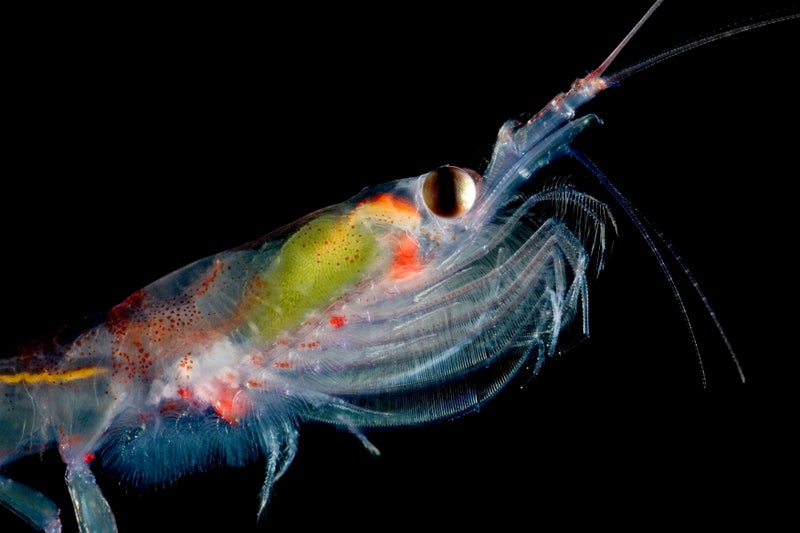Meganne Christian looks back fondly at when she lived on an alien planet. A barren world where the temperature rarely goes above -40°C. Antarctica. For a year in 2018, Meganne worked as a winter-over scientist at Concordia station, a research outpost on the southern tip of Ross Island.
![[Liz Johns, Head of Space Exploration (Interim) at UK Space Agency]](https://metro.co.uk/wp-content/uploads/2025/02/SEI_240405558-2582.jpg?quality=90&strip=all&w=646)
‘There were days when I had to go a long way from the base and I’d switch my head torch, let my eyes adjust to the darkness and look up at the stars,’ the 37-year-old told Metro. ‘There were so many shooting stars. Then I’d look down and actually see my shadow in the light of the Milky Way above me.
![[Liz Johns, Head of Space Exploration (Interim) at UK Space Agency]](https://metro.co.uk/wp-content/uploads/2025/02/SEI_240405556-664e.jpg?quality=90&strip=all&w=646)
‘Odd is the only way to describe it. I’d always had a budding interest in becoming an astronaut and being in that environment inspired me to become one.’. Pretty much every kid has said it at one point: ‘When I grow up, I want to be an astronaut.’.
![[Liz Johns, Head of Space Exploration (Interim) at UK Space Agency]](https://metro.co.uk/wp-content/uploads/2025/02/SEI_240406704-11b2-e1739871137963.jpg?quality=90&strip=all&w=646)
And Meganne is closer than most to doing just that. She became part of the European Space Agency’s (ESA) astronaut reserve in 2022, one of 17 picked out of 22,500 applicants. ‘My family and friends weren’t surprised that I applied. They thought it was the next logical thing after abandoning them for a year to go to Antarctica,’ she joked.
![[Liz Johns, Head of Space Exploration (Interim) at UK Space Agency]](https://metro.co.uk/wp-content/uploads/2025/02/SEI_240405956-2d2e.jpg?quality=90&strip=all&w=646)
‘They probably believe in me than I do myself. You don’t think it’s going to happen and then it does. ‘They haven’t told me they’re scared but I suppose there would be an element of that. If I find myself sitting on a rocket ready to launch one day, there would probably be a little bit of fear.’.
![[Liz Johns, Head of Space Exploration (Interim) at UK Space Agency]](https://metro.co.uk/wp-content/uploads/2025/02/SEI_240405557-4d1f.jpg?quality=90&strip=all&w=646)
Unlike career astronauts – who throw on a space suit to clock into work – reserve astronauts sit on the bench. They wait for a spot to open on a flight opportunity provided by an ESA member state. To become an astronaut through the ESA, Europe’s answer to Nasa, applicants need a fair few things, according to the ESA handbook:.
![[Liz Johns, Head of Space Exploration (Interim) at UK Space Agency]](https://metro.co.uk/wp-content/uploads/2025/02/SEI_240406738-45a1.jpg?quality=90&strip=all&w=646)
The hiring process takes place over a year. Meganne, who studied in Australia, has kept herself occupied in the meantime. She has trained in, among other things, science, industrial chemistry, atmospheric physics, meteorology, engineering and has a black belt in Hapkido.

But it was her time at the French-Italian research base in the South Pole that helped prep her for life in the cosmos. For roughly 100 days, Meganne and her dozen colleagues knew nothing but darkness, erratic sleeping patterns and tension inside the tiny research post during the continent’s ‘polar night’.
![[Liz Johns, Head of Space Exploration (Interim) at UK Space Agency]](https://metro.co.uk/wp-content/uploads/2025/02/SEI_240406720-8a1e.jpg?quality=90&strip=all&w=646)
In other words, life on the International Space Station. Just as she would aboard humanity’s high-tech home in the sky, Meganne helped conduct experiments and maintain observatories. ‘So you’re doing this in this extreme environment, a really special place, and being the custodian of other people’s experiments, and that’s what astronauts do on the ISS,’ she said.
![[Liz Johns, Head of Space Exploration (Interim) at UK Space Agency]](https://metro.co.uk/wp-content/uploads/2025/02/SEI_240406703-07a0-e1739874315882.jpg?quality=90&strip=all&w=646)
‘I learned that I could do this work that wasn’t in my sort of background that I’d had before showed me it was something that I could do and something that I would love to do.’. She applied to become an astronaut through the ESA in 2021. ‘During the sections, we had various aptitude tests on physics, maths, logic and memory, psychological testing to see how we work in teams and communicate in different environments and a lot of medical testing and interviews,’ she explained.
![[Liz Johns, Head of Space Exploration (Interim) at UK Space Agency]](https://metro.co.uk/wp-content/uploads/2025/02/SEI_240406702-3be9-e1739874403831.jpg?quality=90&strip=all&w=646)
Now the training begins. Meganne and British astronaut John McFall began their two-month programme at the European Astronaut Centre in Cologne, Germany, last month. Meganne jokes that astronaut boot camp isn’t quite being thrown around a centrifuge like movies suggest. Instead, the pair will pretend to spacewalk by scuba diving and be taught survival skills.
![[Liz Johns, Head of Space Exploration (Interim) at UK Space Agency]](https://metro.co.uk/wp-content/uploads/2025/02/SEI_240406625-941f.jpg?quality=90&strip=all&w=646)
‘Hollywood has a lot to answer for in terms of what an astronaut is,’ she said, adding that her favourite space-themed film is The Martian: ‘I try not to worry about the little scientific inaccurate and enjoy them.’. Living in space weakens the body – people get ‘puffy face and chicken legs’, as one extreme environment expert put it to Metro – hence why future starfarers go through exercises.
![[This image provided by NASA shows a view from orbit looking obliquely across the surface of the moon]](https://metro.co.uk/wp-content/uploads/2025/02/SEI_238562389-c8af.jpg?quality=90&strip=all&w=646)
Liz Johns, the interim head of space exploration at the UK Space Agency, said that Meganne one day being up with the stars, as challenging as the journey will be, will have a huge impact on us Earth-dwellers. ‘Space has an incredible power to inspire and Meganne’s position as a member of the European astronaut reserve, and her role with the UK Space Agency, plays a key part in boosting visibility of the UK’s space sector and inspiring future generations to pursue STEM careers,’ she said.
![[Liz Johns, Head of Space Exploration (Interim) at UK Space Agency]](https://metro.co.uk/wp-content/uploads/2025/02/SEI_240406750-1a83.jpg?quality=90&strip=all&w=646)
‘Her passion and dedication will help us explore new frontiers in human space exploration and show everyone the amazing benefits space has to offer to us all.’. When looking at the space equivalent of Skyscanner will be one day, Meganne said her dream first flight would be to a star system similar to ours.





.jpg?auto=webp&width=800)


























